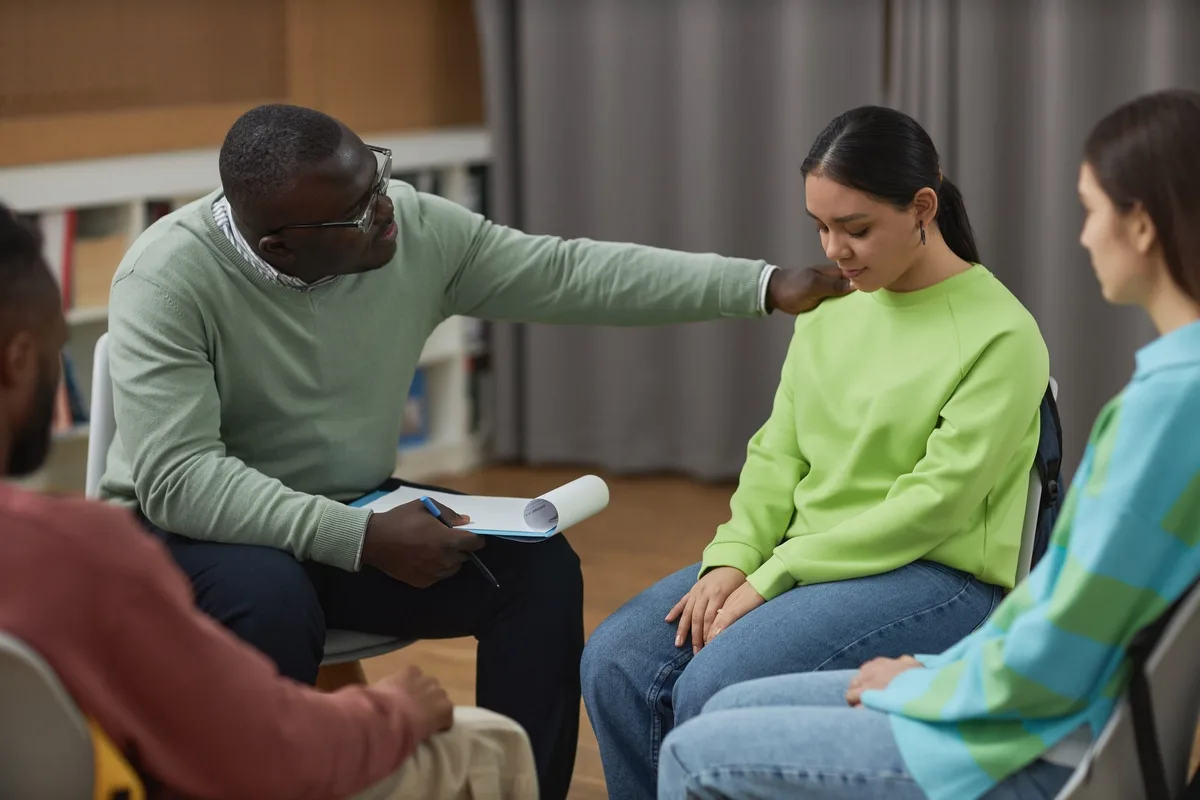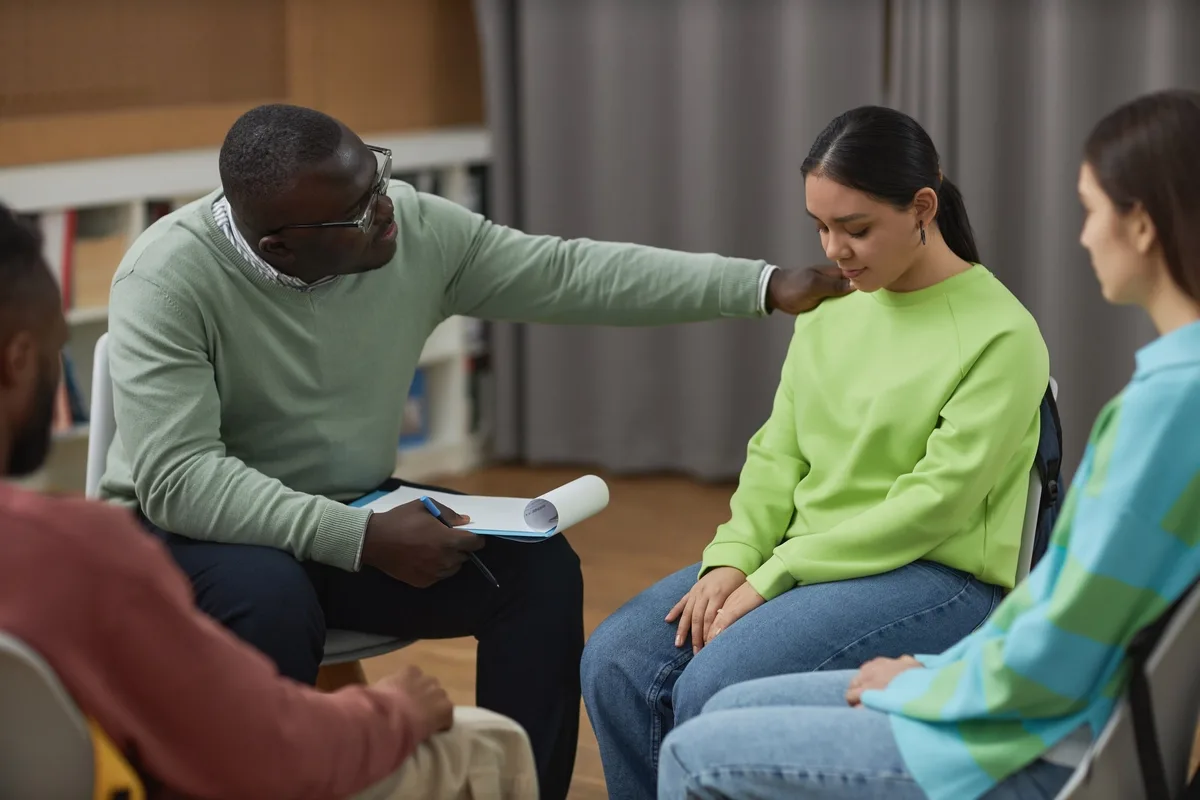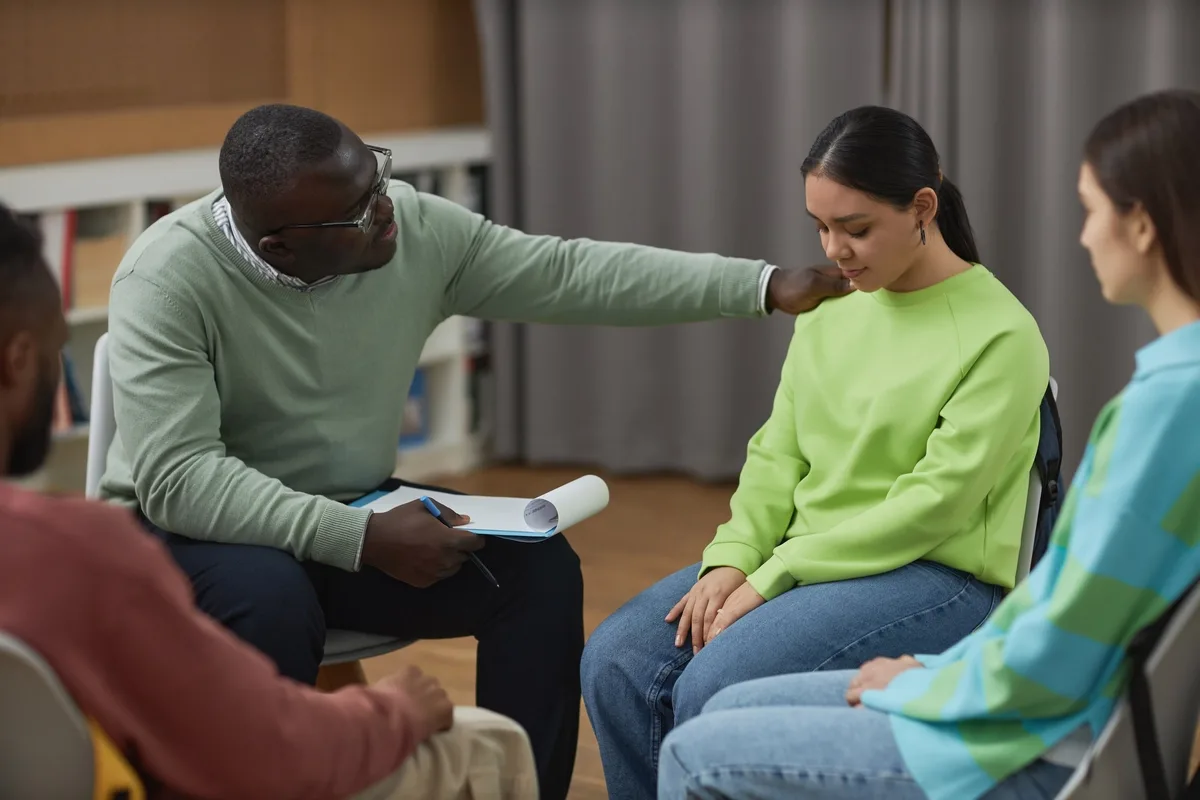24/7 Helpline:
(866) 899-221924/7 Helpline:
(866) 899-2219
Learn more about Eating Disorder Treatment centers in Coweta County
Other Categories in Coweta County

Other Insurance Options

American Behavioral

Sutter

AllWell

Evernorth

BlueCross

Kaiser Permanente

Magellan

Excellus

BlueShield

EmblemHealth

Covered California

Multiplan

Medical Mutual of Ohio

Humana

Lucent

Health Net

Access to Recovery (ATR) Voucher

Meritain

Providence

Magellan Health

Center of Renewed Promises
Center of Renewed Promises is a private rehab located in Newnan, Georgia. Center of Renewed Promises...

S and T Assessment and Counseling Service
S and T Assessment and Counseling Service is a private rehab located in Newnan, Georgia. S and T Ass...

Grace Harbour
Grace Harbour is an outpatient mental health clinic that serves individuals from all ages in a holis...









































Pathways Center
Pathways Center is a public rehab located in Newnan, Georgia. Pathways Center specializes in the tre...

Treatment Center of America – Newnan
Treatment Center of America – Newnan is a private rehab located in Newnan, Georgia. Treatment Center...

AA – Alcoholics Anonymous
AA – Alcoholics Anonymous is a non-profit rehab located in Newnan, Georgia. AA – Alcoholics Anonymou...























































































